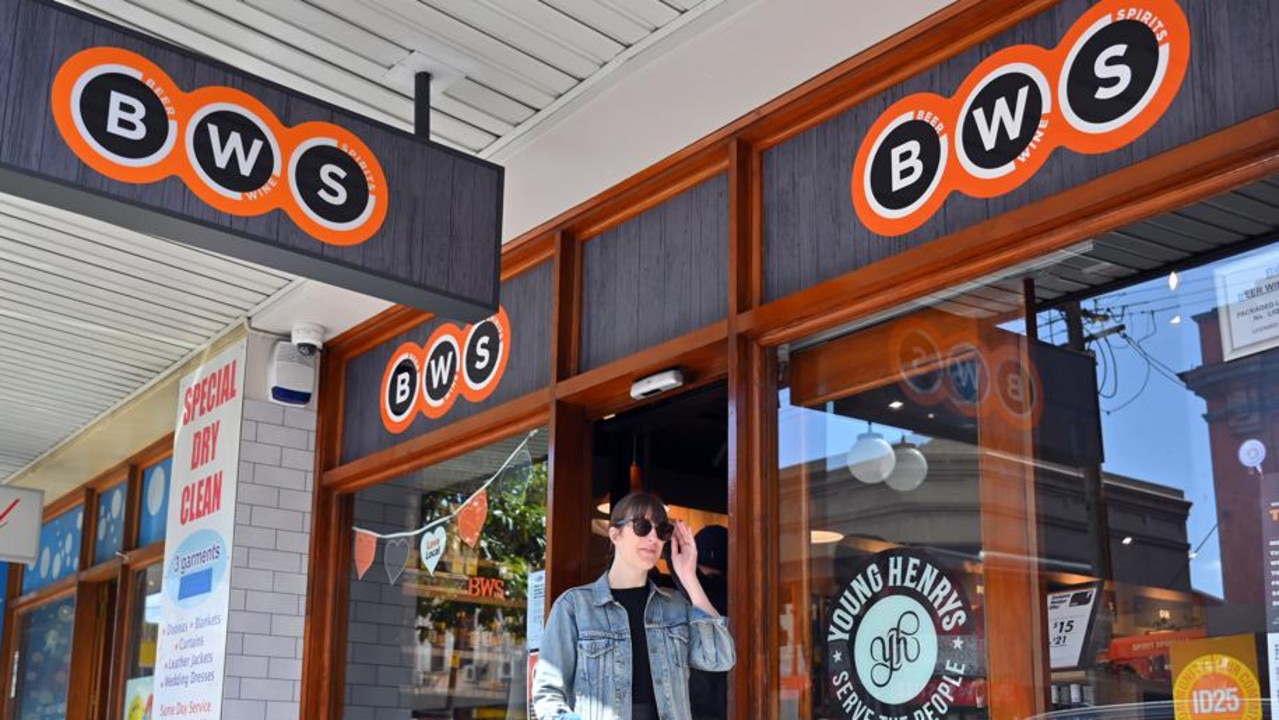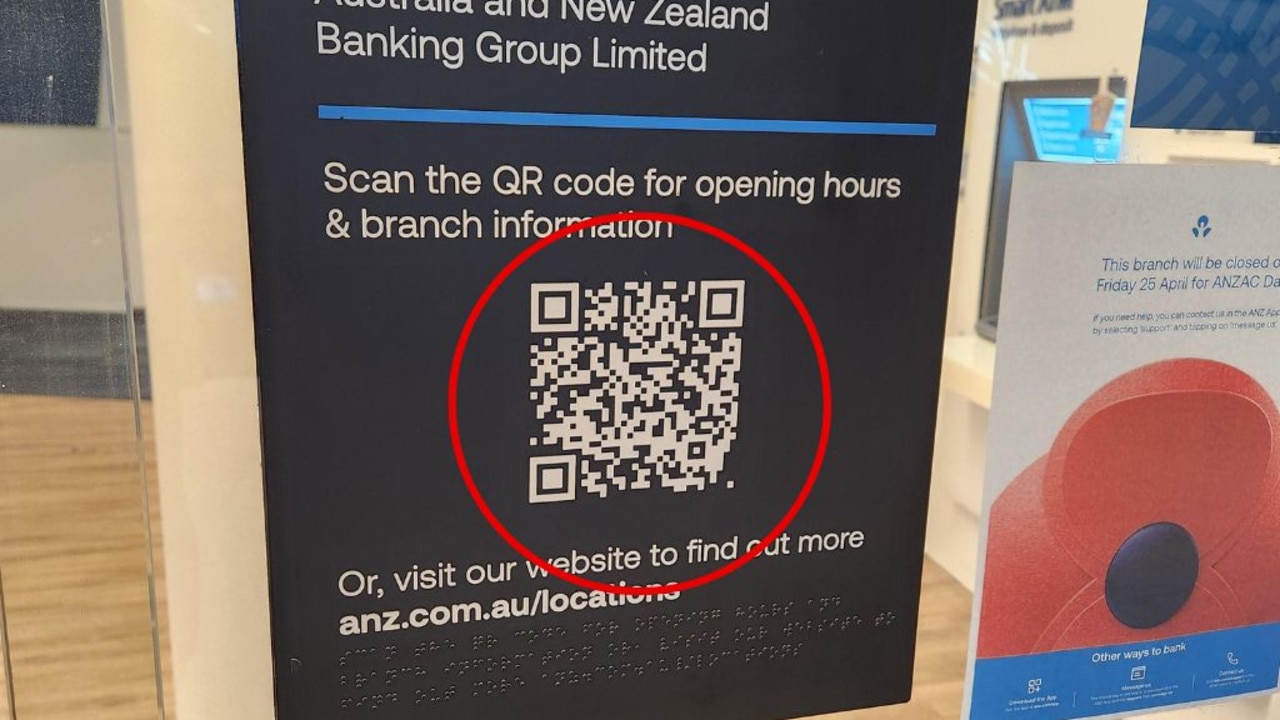‘Basically septic’: New mum details horror post-partum haemorrhage
A first-time mum had no idea she was so sick after giving birth to her newborn, despite the fact she was “almost green”. The ordeal nearly killed her.
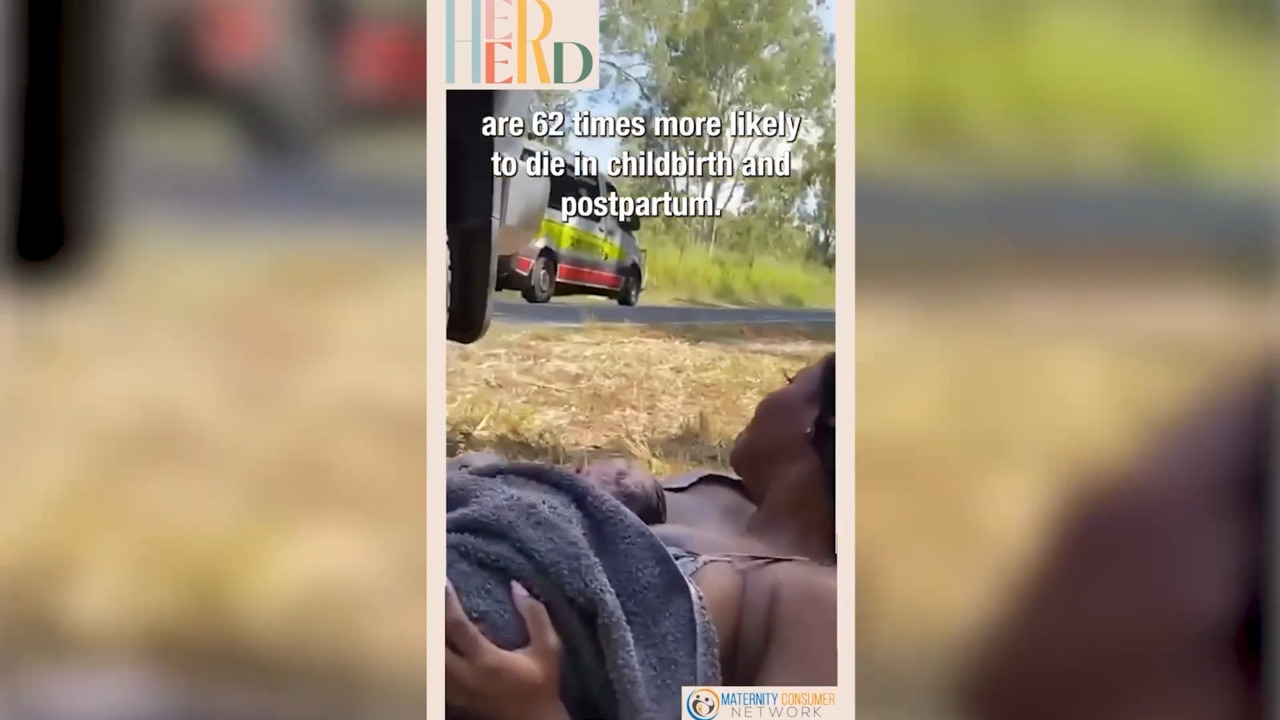
Lifestyle
Don't miss out on the headlines from Lifestyle. Followed categories will be added to My News.
When Laura was four weeks post-partum with her first baby, she travelled from her hometown of Gunnedah in north-central NSW to a friend’s wedding about four hours away with her husband and their newborn daughter. Little did the new mum know, she was so sick she was “basically septic”.
A few days after the wedding, Laura suffered a major post-partum haemorrhage, or heavy bleeding caused by childbirth. She lost nearly two litres of blood, had to be rushed to hospital where nurses worked against the clock to clot her blood and ultimately save her life.
“In hindsight, I didn’t know how sick I really was. I was basically septic but I didn’t realise. I was getting night sweats, my milk didn’t ever come in … when you look back at photos of me, I was almost green,” Laura told news.com.au.
“I was so sick, but I just thought, ‘oh first baby, you’re tired, you’re getting up to feed her.’”
Devastatingly, this was actually Laura’s second post-partum haemorrhage. She suffered an initial haemorrhage immediately after giving birth to her baby girl. So when she started bleeding again four weeks later, she feared the worst.
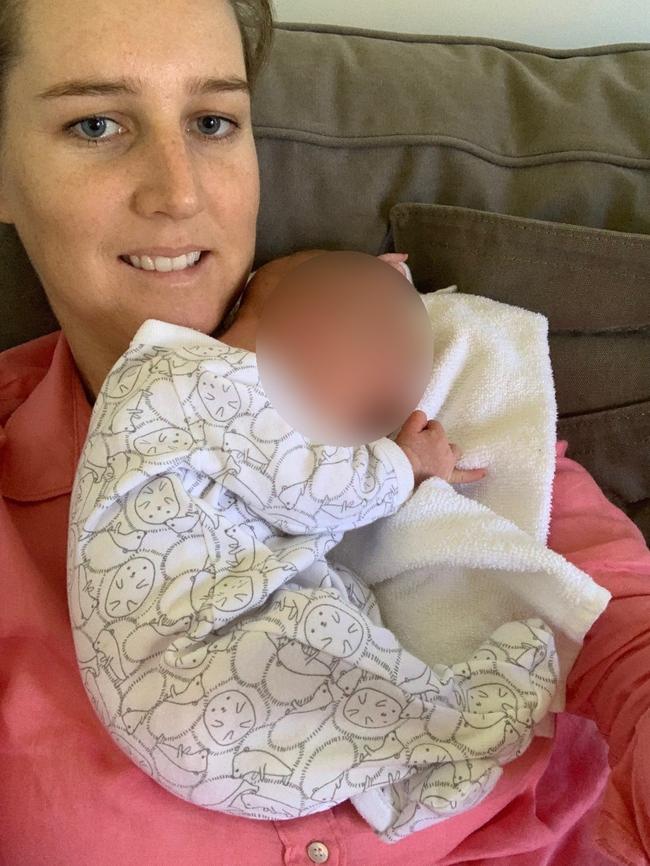
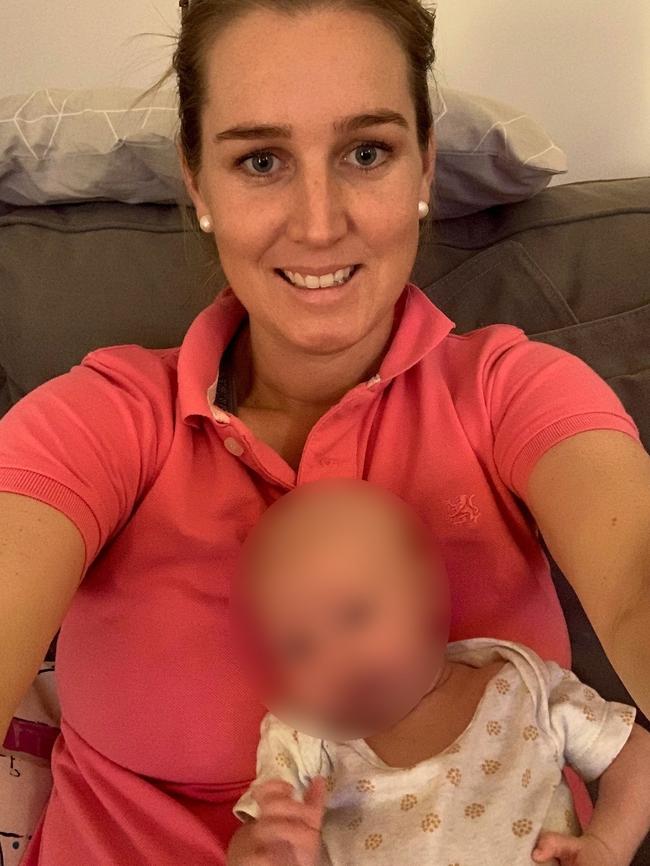
“The day that I had my [second] haemorrhage I was actually going to town grocery shopping. So I’d taken a nappy bag and everything out to the car, I walked into the bathroom and that’s when I started haemorrhaging,” the 37-year-old said.
Laura rang the hospital and told them she thought she was haemorrhaging. The nurse on the phone told her she needed to come straight in. Luckily her husband, Trent, was nearby at the shed and he came running over.
“By the time he got to the house I had two bath towels between my legs and I was out in the car already. And it felt like I was just continuously wetting my pants,” she recalled.
Trent also described the scene in the bathroom as a “war zone”.
“It wasn’t a nice scene, that’s where the panic started to set in,” he admitted, recalling blood trailing from the front door right down the driveway to the passenger side of the car.
Living nearly half an hour away from Gunnedah Hospital, Laura and Trent decided they couldn’t wait for an ambulance, so Trent drove his wife and their newborn baby to the hospital. The new dad admits he doesn’t recall a whole lot from that panicked car trip, saying it was “fight or flight”.
“I was crapping myself to be honest. It’s your first child, and your wife. You feel helpless, if you know what I mean. Scared and helpless.”
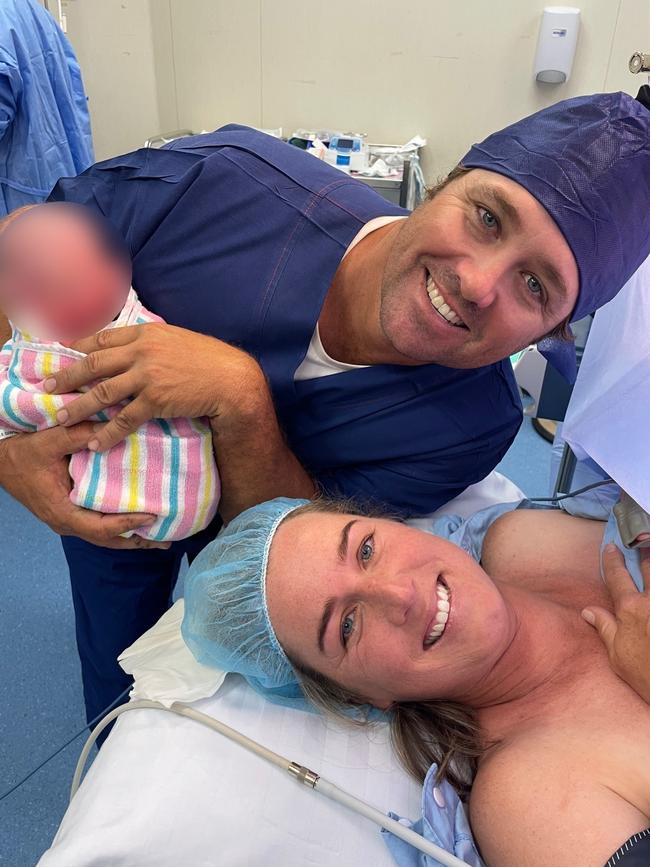
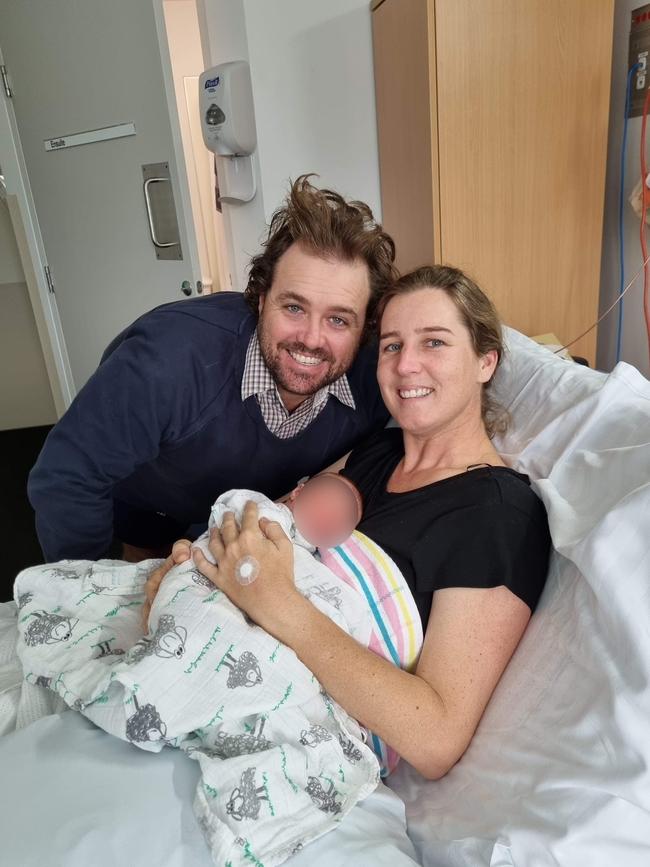
Laura had called ahead so the nurses knew she was coming. “They had drugs and everything ready to try to clot the blood. But the hospital didn’t actually have a doctor in there that day. So they actually had to ring down to the doctor’s practice to get one of the GPs to come up,” the Aussie mum said.
The nurses – who Laura said were “all amazing” from the second her husband pulled up in front of the hospital doors – put a cannula in, and started pumping fluids and drugs. Then a local GP arrived at the hospital and staff were deciding whether or not they would need to airlift her to another hospital for further treatment.
“But they managed to stop the bleeding and decided to go by road because the chopper wasn’t in Gunnedah,” Laura said.
The couple also recall hospital staff weighing the bath towels she had between her legs in the car in order to determine how much blood she’d lost.
Laura was eventually stabilised at Gunnedah hospital and then had to be transferred to Tamworth Hospital, about 70km away, for a blood transfusion and surgery.
Laura spent several nights in Tamworth Hospital. Heartbreakingly, the new mother wasn’t allowed to have her four-week old baby stay with her during this time due to hospital policy. “She [her newborn] was deemed a boarder, even though I was in there for a birth complication, I was the patient, not my baby.
“I just remember sobbing because they wouldn’t let me have her in there. And it wasn’t the midwife’s fault, that’s just the policy. But the ridiculous thing was, they put me in the maternity ward, so I could still hear everyone else’s babies crying all night and it would have been no different [to have her in there].
Following the surgery, Laura struggled to come to terms with the trauma of two post-partum haemorrhages and the separation anxiety she’d experienced during her time away from her baby.
The traumatic experience ultimately led Laura to be diagnosed with PTSD and she began regular therapy sessions to help process what she had been through and to prepare her for the possibility of ever having another child.
“After my second haemorrhage I really spiralled, to the point that I was going to the toilet every 15 minutes to check if I was having a haemorrhage. It wasn’t great,” she said.
“Then I think when our baby was three months old, I was like, ‘This is not OK’. So I went to my GP and told him and had a mental health assessment and that’s when I was diagnosed with PTSD.”
Laura ultimately had weekly sessions with a psychiatrist for more than two years, right up until the point she had her second baby girl in 2022.
“It was pretty horrendous when I first found out I was pregnant. We’d agreed to try, but I was still having ridiculous nightmares,” she recalled.
Due to complications from her first delivery and with their obstetrician breaking his leg when Laura was 35 weeks pregnant – placing him out of action for the planned caesarean – she needed specialist care for her second delivery, services that hospitals in Gunnedah and Tamworth didn’t have the resources to provide.
It was the same situation for her third baby girl, born in 2024. Both the couple’s second and third children were born in Newcastle.
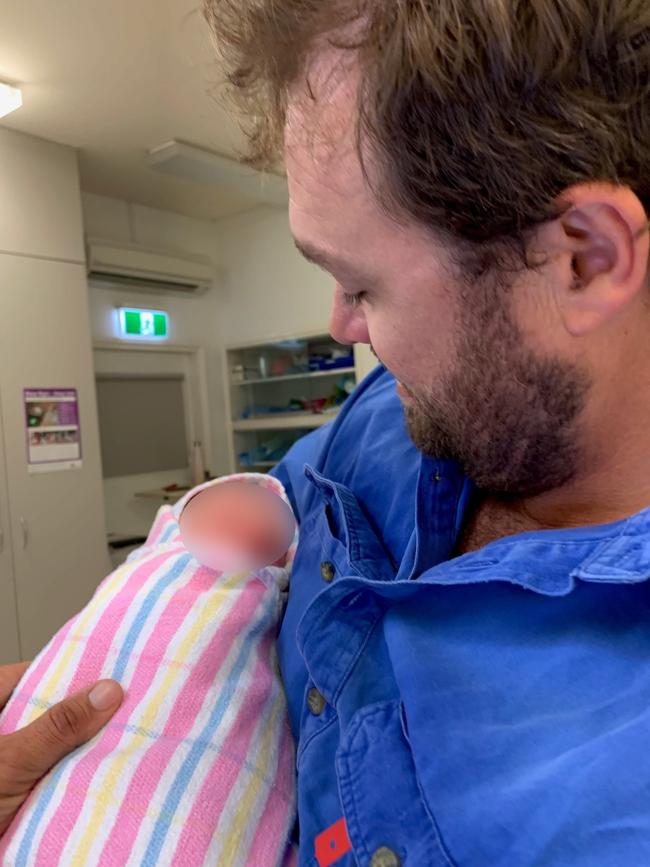
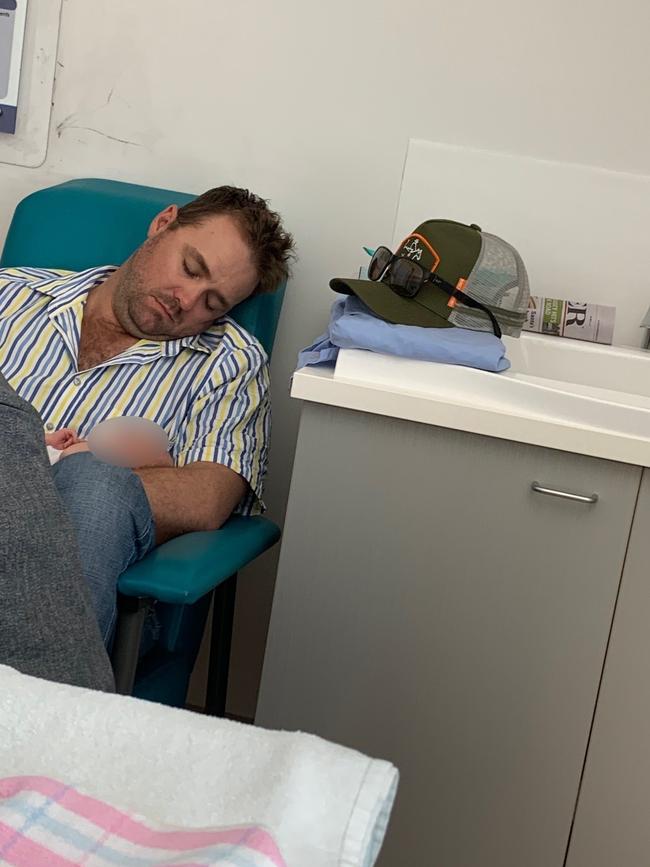
A spokeswoman at Hunter New England Local Health District apologised “for the distress caused to Ms Houston during her admissions to Tamworth and Gunnedah Hospitals”.
“We want to assure the community that both Tamworth and Gunnedah Hospital provide high quality care and make every effort to ensure newborn or young babies can remain with their mother if she is re-admitted,” Susan Heyman, Executive Director of Operations, told news.com.au.
“In 2024 the district introduced a policy to ensure newborns (0-28 days of age) may accompany their mothers to hospital where the mother requires readmission for medical care within the post-natal period.”
Addressing the lack of a doctor on duty at Gunnedah Hospital when Laura was re-admitted haemorrhaging, Ms Heyman said, “Gunnedah Hospital always has access to a medical officer, however, we rely on local general practitioners (GPs), who are also qualified as obstetricians and gynaecologists, to fill visiting medical officer roles in our hospital. This means these doctors can provide care to the community via their GP clinics and attend the hospital when required.
“Our services are networked to ensure people who present to our hospitals will receive the care they need at the most appropriate service to deliver it. Sometimes this means people can be transferred to a larger facility, better equipped to manage their condition.”
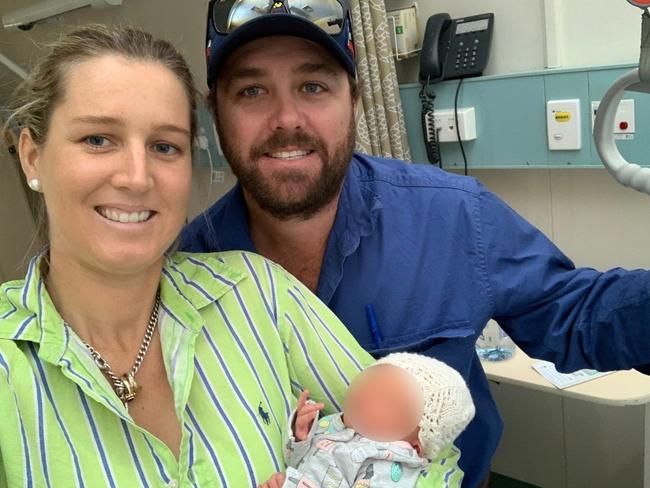
Laura and Trent are sharing their story as part of the Bush Babies Campaign, which is advocating to address critical issues in maternity care in rural, regional and remote areas.
“We urge the Government to allocate bundled funding across all maternity settings and care providers to promote equity in funding and service delivery, ensuring all women have access to quality maternity care, regardless of location,” is one such demand.
The couple believe the centralised care model for New England and North West residents – all routed through Tamworth – is putting enormous pressure on an eroding system, which is putting already vulnerable rural women at even greater risk. The sheer geographical distance between hospitals means centralised care is simply not working.
“I really do want to stress is that it’s not a lack of quality in our healthcare professionals. Our doctors and midwives in Gunnedah and Tamworth were all amazing,” Laura said. “The problem is that they don’t receive enough support so the amount of services they can provide are declining.
“There are no incentives for young midwives or doctors to come out here.”
Originally published as ‘Basically septic’: New mum details horror post-partum haemorrhage


